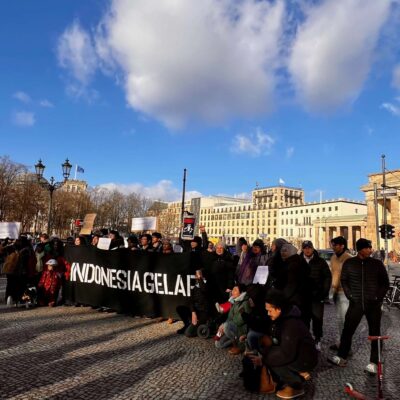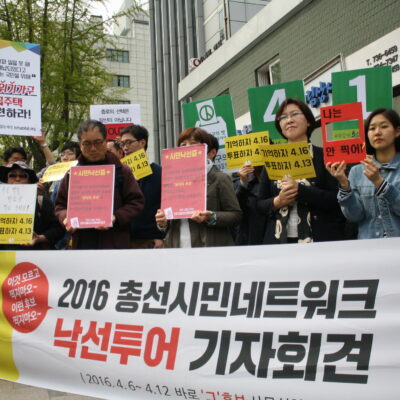The Legislative Branches of many countries in Latin America and the Caribbean have significant limitations in terms of providing access to public information about their work, accountability and citizen participation. Civil society organisations dedicated to parliamentary monitoring recognise this situation in their respective countries, but often lack the resources and knowledge to overcome it.
In this context, in 2010 a group of parliamentary monitoring organisations (PMOs) from Argentina, Chile, Colombia, Peru and Mexico created the Latin American Network for Legislative Transparency (the Network) with the aim of generating a space for the exchange of good practices in transparency, participation and legislative ethics and the creation of advocacy tools. Fourteen years later, more than 30 PMOs from 15 countries in Latin America and the Caribbean are members.
It should be noted that PMOs in Latin America have also been helped by international tools and platforms that have become instrumental in promoting parliamentary openness. Among them are:
- The Model Inter-American Law on Access to Public Information, which was approved by the Organisation of American States in 2010 and amended in 2020.
- The Open Government Partnership, an international alliance of more than 70 countries that promotes public sector openness through the implementation of action plans, which was launched in 2012.
- The Declaration of Parliamentary Openness, published in 2012 by OpeningParliament.org (a forum for PMOs), is a cornerstone for greater commitment to transparency and citizen participation in the legislative process.
The development of an Index to measure legislative transparency
In 2011, organisations in the Network created an innovative tool that would allow them, in an objective way, to rate levels of parliamentary transparency in the parliaments of their respective countries. The Latin American Index of Legislative Transparency (the Index) is applied by the Network’s parliamentary monitoring organisations every two years to evaluate the effectiveness of policies and mechanisms of transparency, citizen participation and accountability in national legislatures. For instance, in Argentina Directorio Legislativo (DL) carries out this work, in Mexico Impacto Legislativo, Visión Legislativa, Fundar and Transparencia Mexicana, in Colombia Congreso Visible and Instituto de Ciencia Política and in Paraguay Semillas para la Democracia do this work, to name a few. The application of the Index at regular time periods allows civil society organisations to identify the areas where parliaments have made progress towards transparency or where they have regressed.
The Index is composed of over 400 questions grouped into four categories:
- Normative aspects: This refers to the existence and scope of laws on transparency, citizen participation, and the ethics and probity of parliamentarians; for example, access to public information, public consultation processes with a focus on gender and vulnerable groups, open parliament and media involvement, and codes of ethics for parliamentarians. It represents 15 percent of the total score.
- Legislative work: This refers to the implementation of mechanisms that guarantee the transparency of parliamentary functions and processes. For example, the publication of documents that account for what happens at various stages of the passage of proposed legislation through parliament such as agendas, minutes, attendance by parliamentarians and voting records. It represents 25 percent of the total score.
- Budget and administrative management: This refers to the degree of transparency in the use of public resources allocated to the work of Parliament. For example, this measure addresses access to information about MPs and parliamentary staffers’ salaries and resumés; decision-making structures; and public procurement. It represents 25 percent of the total score.
- Citizen participation: This refers to the existence of practices that allow the involvement of citizens in the legislative process and parliamentary accountability. For example, it analyses what sort of channels are available for citizens to connect with their MPs; the existence of open parliament plans (formal documents committing to a more open parliament) and standards for their co-creation; and the use of social media to disseminate information about activities in Parliament, among others. It represents 35 percent of the total score.
As the Index is a complex tool, its implementation is always led by one or more local organisations. Other participating PMOs apart from the ones already mentioned have been Fundación para el Desarrollo de la Libertad Ciudadana in Panama and Fundación Ciudadanía y Desarrollo in Ecuador.
In the 2023 edition, Directorio Legislativo measured the Index of the Argentine Congress. To achieve this, it used a spreadsheet containing Index questions, which included open-ended questions (‘What regulation determines MP’s remuneration?’), single-choice questions (‘Are public hearings held at the committee stage? Yes/No’), and multiple-choice questions (‘Where is the discussion and approval of the national budget published? (a) Congress website, (b) social media, (c) e-mail, (d) newspaper’). These questions were answered based on information proactively published by the Chamber of Deputies and the Senate on their websites (proactive transparency). In some cases, this was supplemented with Access to Information Requests (passive transparency). Throughout the process, partial results were shared with the points of contact of both chambers for their review and feedback.
After completing the measurement, Directorio Legislativo prepared an analysis report of the results and provided recommendations to the Congress. Key recommendations included developing a common standard for publishing information about deputies, senators, and committee activities, as well as making information about the budget allocated to parliamentary blocs and the execution of funds available. A notable best practice was the Open Laws Portal of the Chamber of Deputies, a platform where lawmakers publish bill drafts to receive comments from citizens to enrich the initiative. At the regional level, the Argentine Congress ranked 6th out of 14 in terms of parliamentary transparency, behind Chile, Peru, Mexico, Costa Rica, and Paraguay.
In this edition, Directorio Legislativo also coordinated the work of all organisations at the regional level, following its 2023-2025 mandate as the leader of Network. DL conducted training for organisations on how to complete the Index using the spreadsheet and held periodic review meetings to ensure synchronised progress and to jointly analyse challenges and opportunities in the tool’s application.
Other key aspects of the Index include:
- Periodic revisions: The network organisations review the methodology of the Index to ensure that it is adapted to the Latin American legislative reality, while being attuned to the different levels of parliamentary openness and transparency at the international level. However, the Index is not updated each time it is applied as this could negatively impact the comparability of the results over the years. The 2020 edition implemented an important change: that all indicators linked to Open Parliament were to be applied to all functions of the Legislative branch. These included the existence of open data policies and the quality of published data, access to financial interest declarations’ on lobbyist registries, and the existence of an Open Parliament Action Plan with attributes of collaboration, co-creation, independent evaluation and dissemination. In addition, the Network increased the relative weight of the citizen participation element, considering the growing relevance of the active involvement of citizens in the legislative process. On the other hand, the relative weight of the normative dimension element was reduced, because the Network prioritises the implementation of transparency and accountability policies over the mere existence of laws or regulations that are not properly implemented.
- Sets high standards: The Index establishes best practice in relation to transparency, accountability and citizen participation. For example, the Index asks whether there is a regulation on lobbying in Parliament and whether the regulation covers aspects such as the publication of meeting registers and description of participants and topics discussed. If it does not comply with these requirements determined by the Index, then the regulation is considered to be deficient. This helps organisations to advocate for the improvement of parliamentary practices.
- Parliaments are invited to participate in the measurement: Although the application of the Index is led by a network of CSOs, it is essential to involve the legislative branches in the process to create a sense of ownership and thus increase the chances of implementing the Index’s recommendations. In addition, positive collaboration between Parliaments and CSOs strengthens the links between representatives and constituents.
Success stories across Latin America and the Caribbean
Throughout its 13-year history, the Network has successfully pushed for transparency and parliamentary openness reform through recommendations arising from the application of the Transparency Index and addressing threats and setbacks to civic space through collective action.
- Argentina: In 2016, the Index indicated a lack of transparency in relation to information about budget expenditure in Congress. The analysis served as input for discussions between officials and civil society on how to address this issue. After several years of collaborative work, this information was made available through an Open Data Portal in the Lower Chamber.
- Costa Rica: The Legislative Assembly’s portal has included a section since 2016, which contains open data and documents related to accountability, educational material and information from the Open Parliament Institutional Committee. This section was initiated by deficiencies identified by the Index and the work of local Network organisations.
- Ecuador: In 2022, a multi-stakeholder forum was formed for the co-creation of Open Parliament plans, as a result of the recommendations of the Index 2020. The Open Parliament Consultative Council seeks to be a space for consultation, advice and evaluation between the National Assembly and civil society in relation to the implementation of legislative transparency policies and citizen participation.
- Mexico: The state agency in charge of enforcing regulations on public access to information is the INAI (Federal Institute for Access to Public Information and Data Protection). Its commissioners are appointed by the Senate in agreement with the Executive, but its work was impeded by conflicting views among parliamentary factions and a lack of backing from the executive branch. In response, in 2023, the Network issued a statement urging Senate consensus, disseminated among Senate members and amplified across social media platforms by Network member organisations. Despite the Senate’s compliance with a judicial order, internal divisions persisted, resulting in a halt to the nomination of Commissioners. Consequently, facing mounting pressure from legal circles and civil society, the Supreme Court granted permission for the INAI to function with a diminished quorum.
Setting up a lasting PMO network in Asia
Creating and sustaining a network of PMOs over time is a difficult but not impossible task. Based on the Latin American Network’s 13 years of existence, some elements of success are:
Robust governance of a transparency network: Devise clear statements explaining what the purpose of the network is, who it is led by, how they are elected, how decisions are made, what the rights and obligations of members are, and spaces for discussing new proposals and ideas. The leadership of the network should rotate so that all organisations within it have the opportunity to head it.
Ensure a minimum level of network activities: The availability of funds for projects is always the main challenge to sustain these kind of networks. In this regard, expect that many of the network’s activities will not be funded. The key is to ensure that network members have an institutional commitment to parliamentary monitoring that is not dependent on funding. When financial resources are available, expand the network’s muscle and develop more products (reports, workshops); and when they are not, focus only on core activities (such as an Index measurement) to maintain momentum and ties among members.
Stay self-critical and aware of international trends: The activities and work of a network should be in tune with international conversations on parliamentary monitoring and strengthening to ensure that it remains relevant for advocating for stronger parliaments. Also, this helps to identify areas for improvement and updating of the network’s products.
Create synergies with leading PMOs in the field and global platforms: There are many organisations that work on the Open Parliament agenda and that are aligned with the values of a PMO network. For the Latin American Network for Legislative Transparency, the most concrete is ParlAmericas, which has a roadmap with recommendations on parliamentary openness and a network of parliamentarians throughout the Americas. The LANLT-ParlAmericas alliance is fundamental to approach closed parliaments (e.g. Honduras). For partners across the world, Directorio Legislativo (DL) is a leading PMO on parliamentary monitoring, strengthening and network-building and has provided technical support to reformers in Latin America and the Carribean, Africa, Asia and Europe. Other relevant platforms are the Open Parliament e-Network (OPeN) and the Open Government Partnership.
Involve parliaments in monitoring and priority selection activities: The Index measurement includes multiple occasions in which input from parliamentary authorities is sought to secure their support for carrying out the assessment and acting on the resulting recommendations. This boosts the likelihood of Parliament endorsing the assessment process and implementing the proposed initiatives.
Leverage strength in numbers: Approaching Parliaments with the backing of a network, rather than just one organisation, increases the chances of being heard.
These strategies have been effective in Latin America, but reformers elsewhere wishing to undertake such work will probably need to adapt some, or all, of these recommendations considering the political and cultural characteristics of their nations and region.
As for the Latin American Network, there’s still a lot of work to do. For instance, in Argentina, for over six years, assessments have underscored the need to advance the regulation of lobbyists’ interaction with government, whether through specific legislation or by implementing measures to increase transparency regarding legislators’ meetings with stakeholders, including the topics discussed and the participants involved. Similarly, another unresolved issue is the establishment of an agency to oversee the enforcement of the public information access law in the Legislative branch. However, the lack of political will to address these aspects has posed a challenge that civil society continues to strive to overcome.
The Index has proven to be a useful tool for driving reforms in Parliaments, but it must be revised to incorporate and assess current hot topics in the legislative agenda, such as Artificial Intelligence and its transparent and accountable use in parliamentary work, and to evaluate the relevance of current Index questions. Additionally, the Network must strengthen its capacity for collective action in the face of growing threats to civic space that are replicating throughout the region and to advocate for long-overdue legislative reforms.
Image: MPs of the Bolivian Chamber of Deputies voting, February 2022. Credit: Asamblea Legislativa Plurinacional/WikiCommons.




